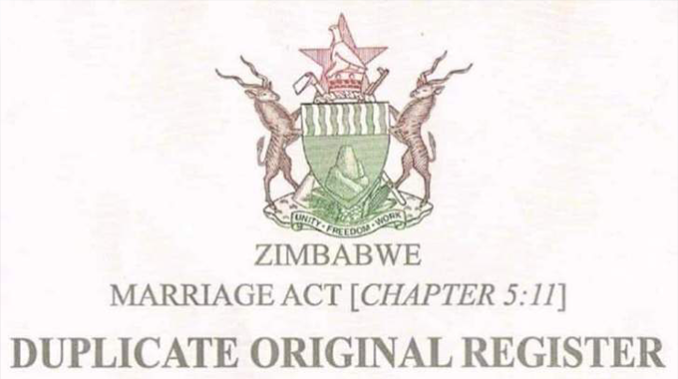The Law Society of Zimbabwe (LSZ) has issued a concerning advisory, urging couples to scrutinize their marriage certificates following the revelation of a significant discrepancy rendering potentially hundreds of certificates invalid. This discrepancy stems from referencing an outdated law, prompting fears of legal repercussions for affected couples.
Following the enactment of the Marriages Act (Chapter 5:17) on May 27, 2022, which introduced sweeping reforms to Zimbabwe’s marriage laws, including the repeal of the previous Marriage Act (Chapter 5:11), a critical oversight has emerged. While the law underwent necessary updates, the physical marriage certificates failed to reflect these changes accurately. Consequently, certificates erroneously cite the obsolete “Chapter 5:11” of the Marriage Act, instead of the current legislation.
Edward Mapara, the LSZ executive secretary, issued a public notice highlighting the error and advising affected parties to rectify their certificates promptly. He emphasized the importance of ensuring that legal documents accurately reflect the updated legal framework to prevent potential complications, particularly in divorce proceedings.
This revelation has sparked panic and uncertainty among couples who tied the knot post-September 2022, as they grapple with the implications of possessing defective certificates. Legal experts, including family law practitioners, underscore the urgency of addressing this issue to safeguard the rights and interests of married couples.
According to legal expert Aaron Hamauswa, failure to correct the information on the marriage certificate renders the marriage null and void under Zimbabwean law. This underscores the gravity of the situation and the imperative for swift corrective action.
The ramifications of this oversight extend beyond legal technicalities, impacting individuals’ practical concerns, especially those planning to relocate abroad as a couple. The process of rectification poses logistical and bureaucratic challenges, adding to the distress of affected couples.
Furthermore, the new Marriage Act introduces significant changes, including equal rights for women in registered unions and the criminalization of child marriages. However, the current focus remains on rectifying the invalid marriage certificates to ensure legal compliance and marital validity.
As affected couples navigate this legal issue, urgent steps are necessary to rectify the certificates and uphold the integrity of marital unions in Zimbabwe.
